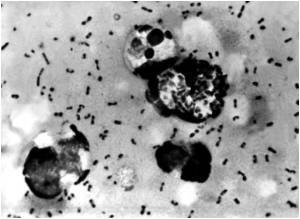Obese patients who test positive for methane on their breath have a significantly higher body mass index (BMI) than their peers, according to a new Cedars-Sinai research.

"Obesity is a major health issue and is reaching pandemic levels. It is our hope that by better understanding all the factors that contribute to obesity, we can develop more effective ways of fighting it," said Ruchi Mathur, a physician in the Division of Endocrinology, Diabetes and Metabolism and one of the study's authors.
The research was a joint effort of the Center for Weight Loss and the GI Motility Program. The
Study's lead author Mark Pimentel, director of the GI Motility Program at Cedars-Sinai, said: "Currently we are learning new ways to treat methane-producing bacteria. Future studies addressing these and other bacteria could be part of a number of techniques to improve the chances for weight loss in obese subjects."
In the study, 58 patients age 18 to 65 with BMIs between 30 and 60 were given a breath test to determine if methane was present. About 20 percent of those patients tested methane positive.
The methane-positive patients had a BMI of up to 7 points higher than those patients who did not show methane on their breath test.
Advertisement
Previous research by the Cedars-Sinai GI Motility Program has shown that methane from methane-producing bacteria can slow the gut down.
Advertisement
Adrienne Youdim, director of medical weight loss at the Cedars-Sinai Center for Weight Loss, said: "Our strategies for treating this complex medical problem are limited. This finding is a helpful step in better understanding the growing problem of obesity and potentially providing more effective medical treatments."
The study was presented at Digestive Disease Week in New Orleans, La.
Source-ANI
SRM















